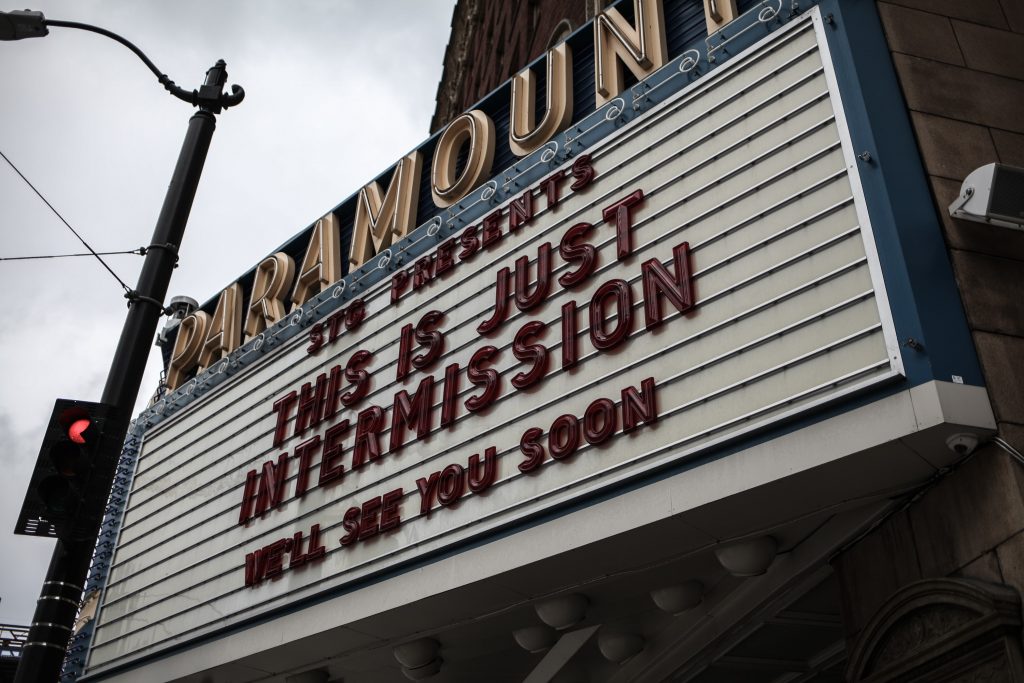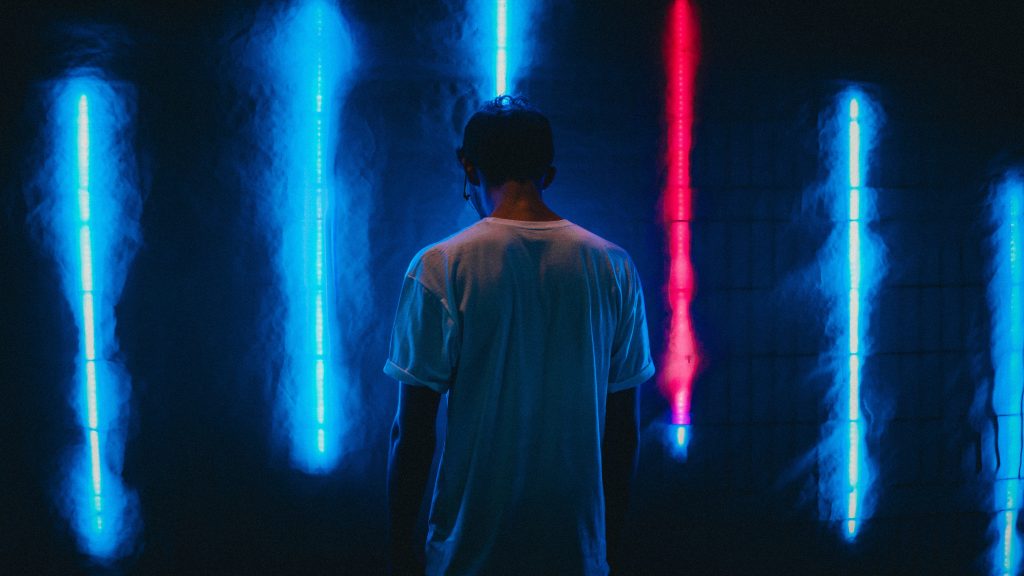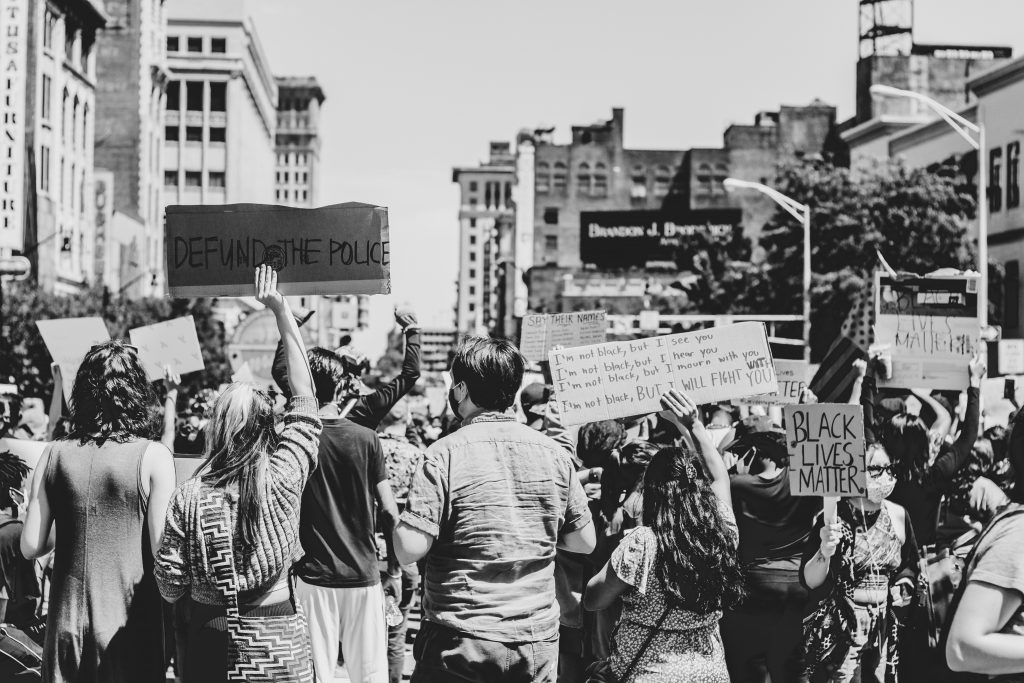Spoiler-Alert!
This article will be about the deaths of some of the main characters. Some heavy spoilers about Marvel’s Iron Man, Avengers: Infinity War and Endgame, Star Wars Episode VII: The Force Awakens, VIII: The Last Jedi and IX: The Rise of Skywalker, as well as Logan – The Wolverine, Harry Potter and the Deathly Hallows, The Lord of the Rings and the musical Hamilton are therefore unfortunately unavoidable!
When I think back to my last visits to the cinema, many exciting, thrilling and elaborate productions come to mind. No problem, no threat (e.g. the extinction of half of all life?!) is so great that the screen heroes and heroines would not and must not face it. One element, a certain motif, appears very often at the moment – at least in my opinion: important characters die. However, they are not simply killed by a villain, no, they sacrifice themselves to defeat evil and save the day. To save (human) lives.

Inhalt
Sad goodbyes
A particularly well-known example of films in which we have to say a painful goodbye to some characters should be Marvel’s Avengers: Infinity War and Endgame. For years (!) we could witness how people became heroes. How an arrogant weapons manufacturer became a protector. How a young, skinny guy full of drive became a super soldier whose only mission was to guarantee justice and stand up for the weak. How a ruthless and tough agent became the voice of reason in a group full of fighters. How a disembodied A.I., heard in some of the other films, became a complex man and protagonist who learned to love. How a cocky god became a guardian for humanity. How a man who became a monster learned to accept everything about himself, every flaw, and became so much stronger. How a villain’s foster daughter became his bitterest enemy. And so much more…
Some of them were dead by the end of the last film (Marvel’s Avengers: Endgame). Their sacrifice had been unavoidable to protect those they cared about and many more. They saved half of all life in the galaxy. They fought to protect those lives and were not afraid to give up everything – even their lives – to do so.
I would like to focus on one of these characters – Tony Stark/ Iron Man. At the beginning of the first 2008 film, we meet him as an arrogant, cocky and obnoxious weapons manufacturer, promoting his products well-protected in Afghanistan. When his convoy is attacked by terrorists who use his own weapons against him, he is injured (metal shards stuck in his chest) and kidnapped. The terrorists want him to rebuild his most powerful weapon for them. Now his ingenuity becomes more apparent: although he appears to be building this weapon, he first develops a device to keep the shards away from his heart and then a metal suit to help him save himself (and a fellow prisoner). The fellow prisoner does not survive the escape, Tony does. Back in New York, he develops his suit further and uses it to help stop the terrorists and the person who sold the weapons to them.
As one of the first superheroes, he became a symbol of hope for those he protected. This is how he eventually found Pepper Potts, his former assistant and later CEO, as he continued to fight for good. Over the next few years, a whole host of enemies waited to be defeated by him. But none were to be as dangerous as the almost invincible and immortal Thanos.
Thanos’ goal was to save the galaxy from overpopulation, which had already been responsible for the destruction of his own world. To do this, he wanted to collect all the Infinity Stones, with the power of which he would be able to make half of all living beings in the galaxy simply disappear with a snap of his fingers. To cut a long story short: He succeeds despite the efforts of the Avengers. Half of all life is wiped out, including some of the heroes, e.g. Peter (Spider-Man), for whom Tony Stark had become something of a foster father. The losses are overwhelming: mothers, fathers, children… for Thanos it didn’t matter whose life he claimed. To get his hands on the last Inifinity Stone, he had even sacrificed the life of his beloved daughter himself. When he had achieved his goal, he withdrew.
The losses were hard to bear. Only later would a new chance arise to undo this injustice. An energy signature from the Stones calls the remaining Avengers back into action. So they find Thanos on a remote planet and defeat him with ease. Using the stones had almost killed him anyway. They find out that the energy signature was because he had destroyed the stones so that the decimation of the universe could never be undone.
Five years pass. Hope is fading and the Avengers are mostly just dealing with their individual fates, including Tony, who had built a secluded life and had a daughter after what happened to Pepper.
Meanwhile, Scott (Ant-Man) is freed by a lucky coincidence from the quantum room in which he was stuck. For him, only five minutes – not years – had passed there and he finally senses a chance to perhaps change events through this discovery. The idea is to travel back in time.
Steve (Captain America) and Natasha (Black Widow) therefore ask Tony for help, he is the only one ingenious enough to pull something like this off. He refuses at first – he thinks it’s a false hope, besides he didn’t want to lose what he had gained since Thanos by manipulating time, namely his daughter – but does some calculations, only to realise it’s possible. One could travel through time, retrieve the stones from the past, and by snapping one’s fingers again, bring back those who had disappeared then. So begins the search for the stones in the past – and it claims Natasha’s life. When all the stones are gathered, Bruce (Hulk) uses the stones to bring them all back. He is injured in the process, but survives due to his altered physiology. Unfortunately, however, this is not the “happy ending”.
Thanos had infiltrated the Avengers with a spy. She now uses the technology to bring Thanos and his forces from the past into the present, who seize the stones. The final showdown and battle for the Infinity Stones ensues. Thanos intends to repeat his deed and, moreover, erase all memories of it so that no one could ever try to undo it again. A fierce battle breaks out. In the end, Tony gets hold of the stones. And he seizes the only chance to save everyone. He himself uses the power of the stones and snaps his fingers – Thanos and his troops disappear. The battle is won, but the victory takes its toll: Tony succumbs to his injuries in the face of Pepper, Peter and the others. His life for that of half of all living beings.
But Iron Man, Black Widow (and Vision) are not the only heroes and heroines who gave their lives for good. Recently, we had to say goodbye to a whole series of characters who met their end through self-sacrifice.
I would therefore also like to talk about Star Wars, where we have had to cope with a lot, especially in recent times. First, in the latest trilogy, Han Solo died trying to save his son from the dark side of the Force – that moment only had a big impact on Ben later. Then Luke Skywalker died using all his power to protect the Rebellion. Leia also sacrificed everything in that fight. Even Ben Solo eventually gave his life for good (and for his lover) as Anakin Skywalker once did for his son.
With Ben, however, it is debatable whether he actually dies a heroic death, or: whether he was a hero. I’m definitely in favour of it though, especially if you see Anakin as a hero too (I explain why he is one here). So let’s take a look at his story. Ben Solo is the son of Han Solo and Leia Skywalker. As a boy, he is sent to his uncle’s newly built Jedi Temple to be trained. Snoke, the Supreme Leader of the rising First Order, which has grown out of the Empire, takes notice of Ben and tries to seduce him to the dark side. Luke senses his nephew’s growing darkness and one night considers murdering him in his bedchamber out of fear. Although he changes his mind at the last moment, Ben feels betrayed and especially frightened and brings down the ceiling. Believing Luke to be dead, he kills all the Padawans he cannot also turn to the dark side and destroys the temple. In the years that follow, he is trained by Snoke to become a Sith.
At some point, Ben – known as Kylo Ren – is tasked with tracking down Luke Skywalker. He’s not the only one in the galaxy looking for him, though, as Rey and the new Rebellion also hope to find Luke. Kylo Ren eventually manages to capture Rey, as she was in possession of a map that led to Luke. Through the Force, he tries to find what he needs in her mind, but she is able to resist him. As a result, Ren should take Rey to his master so he could turn her to the dark side. Meanwhile, Finn, Chewbacca and Han Solo try to save Rey, which they succeed in doing. In the process, Han discovers his son – and tries to get through to him to bring him back. Ren asks if his father could forgive him for what he has done. He answers in the affirmative. Nevertheless, Ren kills Han with his lightsaber. He strokes his son’s face one last time.
Of course Snoke is disappointed in his student. However, he realises that Kylo Ren and Rey are connected by something like a mental bridge of the Force through which they could communicate. Although Rey had been very sceptical about this at first, she accepted their connection and decides to trust Ren. He tells her his story with Luke from his point of view and tells her that Luke wanted to kill him. Meanwhile, Rey has finally found Luke, who tells her that he decided against killing Ben at the last moment. However, he refuses to fight for the resistance.
Rey makes her way alone to Kylo Ren/Ben and lets him capture her and show her to Snoke. He demonstrates his power to her and wants to convert her – but she won’t let him, appeals to Ben. When Snoke realises he won’t succeed, he tells Kylo Ren to kill Rey. He kills Snoke instead. Together they fight and defeat his guards. But the good in Ben hasn’t won yet – they fight over Luke’s old lightsaber. It breaks. The rebels come to rescue Rey, with Ren fainting in the process. Later, when other members of the First Order arrive on the scene, Rey is gone and he claims she was the one who killed Snoke. Now he is the Supreme Leader of the First Order and attacks the Resistance, but Luke saves them.
Ren then goes in search of Rey again, using the Force Link and finding her in the wreckage of the second Death Star. A duel ensues, during which Leia connects with her son through the Force. The son is distracted so that Rey can injure him. Before she flees, she heals him. Ben stays behind. Suddenly he has a vision of his father. Startled, he throws his lightsaber into the water.
Rey eventually finds Palpatine’s throne room on Exegol. Ben sneaks in there too, but is discovered by the Knights of Ren who once followed him. Unarmed, he has to fight them. Rey sees this and teleports her lightsaber to him, so he emerges victorious. Together, Rey and Ben face Palpatine. However, Palpatine drains their life energy and they collapse. Ben, however, manages to get up, but the Emperor hurls him down a precipice. Rey manages to defeat Palpatine at that moment, but collapses dead. Ben had managed to cling to the edge of the chasm, injured, and now crawls to her. Just as Rey once healed him, he now brings her back to life, but the price is high. When Rey comes to, they kiss, but afterwards Ben – now finally happy in that moment – breaks down. He gave his life for hers and becomes one with the Force. He’s definitely a hero to me.

But as already mentioned, there are many more examples of heroines who sacrificed themselves. Even the X-Men films are not without self-sacrifice, just think of Logan (and he is not the only one). A slightly older example, but Harry Potter was also prepared to die – although he was resurrected at the time. Likewise Gandalf. In Doctor Who, the Doctor repeatedly gives his life for others, he does regenerate – so he doesn’t die in the actual sense – but he sacrifices the person he was in this life.
In general, it seems that at the latest since George R. R. Martin and the adaptation of his already successful books as a series (meaning, of course, “Game of Thrones”), the final death of protagonists is no longer taboo. A “happy ending” for everyone is no longer a must. Instead, these people are taken down a little from their pedestal, they can die like everyone else. But their honour and nobility make them role models of unprecedented greatness, as sad as the farewells are.
Why do characters have to die?
But it seemed to me that I was still missing something to really understand why so many heroines had to give their lives to save someone or everyone. As I listened repeatedly to one of my favourite musicals, one sentence stood out for me:
„If you stand for nothing [Burr], what do you fall for?“
Alexander Hamilton in the musical “Hamilton” by Lin-Manuel Miranda. (Song: “Burr, Sir”)
Could it be because of that? Have we, in the 21st century, rediscovered the search for meaning in life in a truly dramatic way?
In a world as big and complicated as ours, where some of us are lucky enough to be born into privileged circumstances, in a progressive and largely peaceful country like Germany, it sometimes seems hard to find something to fight for (with our lives?). We are not starving. We are free. We are doing well. Does that possibly mean that we no longer know what to fight for either? Is there no longer any real passion for a particular cause?
It cannot be a coincidence that “Hamilton” in particular has enjoyed the greatest popularity since its premiere, especially among young adults. Anyone with knowledge of US history will not be surprised that the protagonist does not live to see the end of the musical. He is shot by Aaron Burr during a duel. Lin-Manuel Miranda, however, gives the story new relevance and meaning. The name “Alexander Hamilton” no longer belongs only in history books, but also in pop culture. However, one could get to this point not only because the music is so great, but also because Alexander Hamilton is what we are always and everywhere looking for: A man with ideals, not without flaws to be sure, but someone who stands up for something.
The story of the musical begins with Hamilton’s youth. His father had been a Scot but left the family, his mother was an outlaw because of her illegitimate relationship, she died of an illness when Alexander was young. After that, Hamilton lived mostly alone in the Caribbean during his childhood, but he stood out because of his sharp mind. Eventually he was sent to the United States to study. It was in New York that he first met Aaron Burr, whom he admired because he was an orphan like him and also stood out for his intellectuality. Burr was not particularly taken with Hamilton, however, as the latter was known above all for wearing his heart on his sleeve and displaying a certain amount of arrogance. Burr therefore gives him advice, instructs him in his own philosophy:
„Talk less. Smile more! Don’t let them know what you’re against or what you’re for […]. Fools who run their mouths off wind up dead.“
Aaron Burr to Alexander Hamilton in the song “Burr, Sir”.
For Hamilton, that is unthinkable. How could you ever make a difference if you don’t stand by your ideals? Burr virtually incapacitated himself through his fear and thus lost Hamilton’s respect. Over time, they became rivals. While Burr stayed in the background, Hamilton sought out like-minded friends and became a confidant of George Washington during the American Revolution. He married Eliza Schuyler, who came from a wealthy home. From Burr’s point of view, fortune fell into his lap, so to speak. Alexander Hamilton eventually became the first Secretary of the Treasury of the United States after the war and integrated a specially devised financial system. But then he made a momentous mistake: he cheated on Eliza with another woman who, it later turns out, seduced him in order to blackmail him afterwards. Burr learns of this secret and threatens to make it public, but Hamilton beats him to it and publishes his affair himself, so that everyone knows that his misconduct was of a private nature and that he never misused state funds for his own purposes. It was clear, however, that Hamilton would never become president.
The next tragedy is not long in coming: Hamilton’s eldest son, Philip, is involved in a duel to protect his father’s reputation. His father still advises him to deliberately just shoot in the air himself (which was not unusual, very few duels actually had victims at the time) to end the conflict. His opponent, however, shoots at him. Philip dies in the arms of his parents. The grief almost destroys them both, but eventually brings them back together.
A few years later, Burr suddenly becomes actively involved in politics, with his own party. In the presidential election of 1800, he and Thomas Jefferson are the leading candidates. All of America seems to know that neither of them are ideal candidates, so they turn to Hamilton, whose voice was still respected, after all, even under George Washington he was an important politician who always wanted the best for his country. Hamilton publicly positions himself in favour of Jefferson:
„The people are asking to hear my voice for the country is facing a difficult choice. And if you were to ask me who I’d promote… Jefferson has my vote. I have never agreed with Jefferson once. We have fought on like 75 different fronts, but when all is said and all is done, Jefferson has beliefs. Burr has none.“
Alexander Hamilton when asked for a positioning in the election campaign between Burr and Jefferson. His vote is decisive. (Song: “The Election of 1800”)
The conflict between Burr and Hamilton escalated. Politically, Hamilton had destroyed Burr with his statement. Burr therefore demands satisfaction, a duel. This duel took place (also in reality) almost on the same spot where Philip died. Hamilton stands by what he advised his son to do, although he was very much aware of the possible consequences: he shoots into the air. Burr, however, fearing what Hamilton would do, shoots his opponent. Hamilton dies. But his legacy lives on, his financial system endures, and Eliza continues to engage in politics and society on her husband’s behalf throughout her life.
In the end, Alexander Hamilton died not because of his ideals, but for his ideals. He was true to his word. And that’s why he died for the world, for honour, that’s why he’s a hero – he’s convinced that people have to stand by their word for the world to work, for there to be peace. He would have died for the revolution too, to free the United States, but he survived the war so that afterwards he had the chance to shape the new nation to create a just system. And that is why he could never have supported Burr – he stood for nothing at all, not the Revolution, not the Constitution, not anything.
Against this background, Hamilton’s death makes sense – though that doesn’t make it any less sad. So I want to return to the initial quote, “If you stand for nothing, Burr, what do you fall for?” Could it be that simple? Could all the deaths just make us realise more strongly than ever that these characters were fighting for something, absolutely? The superheroes promised to protect the world and they did. It was their ideal to protect those who were not powerful enough themselves. Hamilton’s ideals were honesty and sincerity for a better world. Right down to the last consequence. It could almost make me envious that these people found something they could realistically fight for and make a difference – even globally… that they had to die though, I am not envious of that at all. But I will come back to that later.

And although the victim motif seems to be very popular at the moment, it is by no means new. No. There is even an example that probably everyone in the whole world knows. This story is already 2000 years old and is written in the Book of Books: the Bible.
The unsurpassable sacrifice
The sacrifice of this one person is even more significant and important than that of any other hero or heroine. Jesus Christ and his self-sacrifice are even more tremendous and fantastic than those of Iron Man, Ben Solo or Hamilton. His death did more than simply save all the lives that have ever been and will ever be lived, he saved their souls, our souls. The worst thing we could have done was forgiven by it… And we believe that to be true.
“When there’s a fire, a real fire brigade is even better than an imaginary fire brigade, even though that’s already a really good idea.”
One of my lecturers (something like this) when trying to explain the proof of God according to Anselm of Canterbury.
So when you really believe that this sacrifice of Jesus is not just fiction, that he actually died for each and every one of us to save us, our immortal souls, the feeling is overwhelming. The knowledge that there is someone out there who loves us so much… indescribable. The way he lived his life, the way he always cared for those for whom no one else had even a smile – that alone makes Jesus a hero. A hero worthy of being followed. And he died as he lived – selflessly. And even if you don’t believe in all that, it’s a good story: a man sacrifices his life for everyone else – even if that’s probably not the end of his story that he would have happily chosen:
And going a little farther he fell on his face and prayed, saying, “My Father, if it be possible, let this cup pass from me; nevertheless, not as I will, but as you will.”
Matthew 26:39 ESV
I think that shows true heroism. To face one’s fear and trust that one’s sacrifice is worth making. To also save the people who ultimately nailed him to the cross. To forgive them, to be able to say in dying: “Father, forgive them, for they know not what they do!” (Luke 23:34). I’m not sure any of us would be able to do that… In the end, Jesus is rewarded for that and raised from the dead to show God’s goodness. So that even those who are yet to be born will hear a story in which justice triumphs. In which what Jesus did was not in vain. In a way, this is the most difficult thing about discipleship: to be good to poor people is one thing. But to be ready to give everything for the wicked as well and to forgive them everything, regardless of what happens to us, that is the real challenge.
What do we stand for?
So Jesus also stood by his word from the beginning. He had truly found something that was worth standing up for and accepting great suffering for. Like the other heroes, what mattered to him in the end was not what happened to him, but what happened to the world.
Perhaps these heroes help us to realise that there are still things worth fighting for, we just have to look beyond ourselves. If we only look at our own lives, the world may indeed seem boring and predictable at times. But it is far from perfect. Some people suffer every single day and that is not a state we can just accept. If we cannot find meaning in life for our sake, we should make sure to change things for their sake. Corruption, the non-recognition of human rights, hunger… all these sound a bit medieval, but they are quite real.
When we develop a real passion for making the world a better place, each and every one of us becomes a hero too. We have the luxury of choosing our own “weapons”: whether through our involvement in social institutions and organisations, for example, or our appearance at demonstrations, or through our words, with which we show people a new way. We can change the world, we just have to start. There are enough issues out there that are worth the proverbial fight.
But we also have to be careful and reflect on what we do. Harvey Dent once said: “You either die a hero or you live long enough to see yourself become the villain. We don’t have to die like heroes, certainly not. But we have to make sure that we remain heroes. The end does not justify the means, we should not fight fire with fire – but we should also not just throw ourselves into the next bullet fired at innocent people. We should ensure that the gun is not loaded in the first place. In a way, #BLM showed us: racism lead(s) to people’s deaths, then people of all ages and colours peacefully took to the streets and created a new awareness for the lives of minorities. Made us realise that the world has not yet reached its potential.
We are that potential, we should make something of it!


